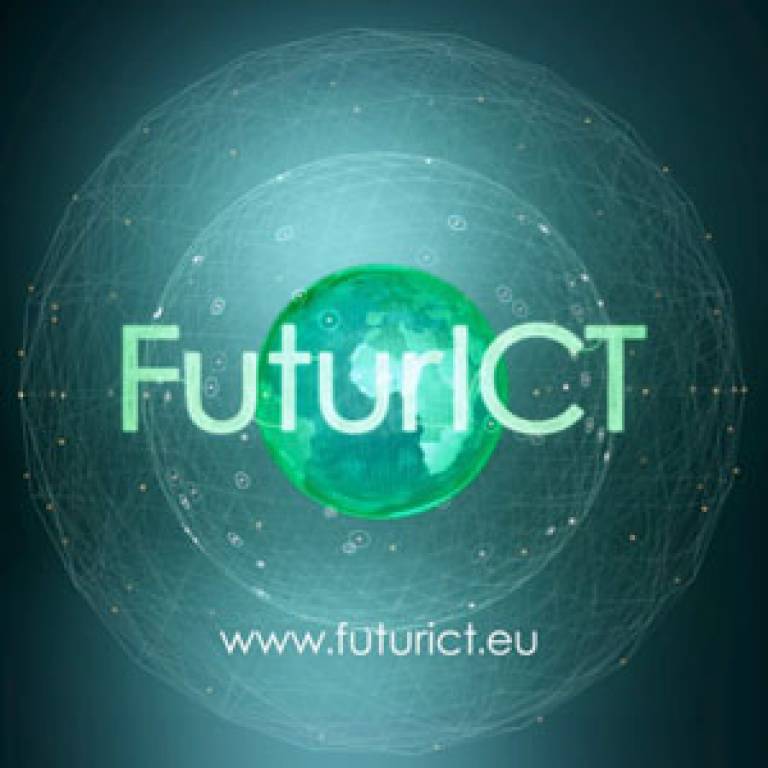Pioneering ICT project wins €1.9m of European funding
16 May 2011
A UCL-led scheme to develop computing facilities capable of analysing data on a global scale has received €1.
 9 million
from the European Commission, placing it among six pilot schemes vying for European
funding worth more than €1 billion.
9 million
from the European Commission, placing it among six pilot schemes vying for European
funding worth more than €1 billion.
FuturICT is an interdisciplinary initiative that aims to exploit major advances in data gathering and processing technologies to develop a planetary scale computer called a Living Earth Platform.
The Platform's processing power would offer scientists, governmental officials and citizens unparalleled insights into the way society functions and provide a basis for predicting natural disasters, or managing and responding to man-made disasters.
The project is scientifically led by Dirk Helbing of ETH Zurich and so, hence, it brings together two of the biggest European university powerhouses.
At a launch event in Budapest on 5 May, the European Commission awarded FuturICT €1.9 million to develop its proposal over 12 months as one of six pilots for its Future and Emerging Technologies (FET) Flagships programme.
The FET Flagships are intended to be large-scale, science-driven initiatives that aim to achieve a visionary technological goal. In the second half of 2012, two of the pilot schemes will be taken forward, each receiving one billion Euros in funding between 2013 and 2023.
FuturICT's lead coordinator Professor Steven Bishop, UCL Mathematics, said: "It is vital for us to understand how our connected systems work so that we may establish working practices that prevents a cascade of failures.
"It is not just a question of prediction, but rather an exploration of possible plural outcomes, in particular to understand both the hidden connectivities that can produce nonlinear feedbacks which lead to unforeseen outcomes."
UCL also has a significant role in one of the other pilot programmes. Professor Mark Girolami, UCL Statistical Science, is leading one of five platforms within the pilot called IT Future of Medicine: a revolution in healthcare (ITFoM).
ITFoM proposes a medical model that would combine leading-edge computing, storage, networking and modeling technologies with genomics to offer healthcare tailored to individual patients' needs.
This would enable each patient's doctor will be able to analyse a person's human genome at every stage of disease management - through diagnosis, treatment and follow-up.
Image: The FuturICT project will offer planetary scale processing
 Close
Close

